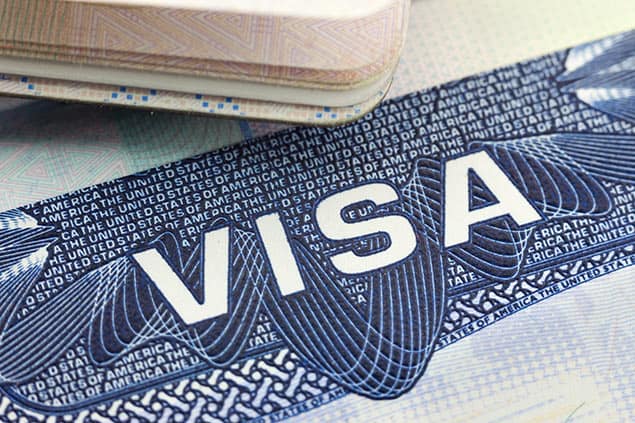New U.S. Visa Policy Affects International Students
Wednesday | August 29, 2018 | by Melissa Mace

Each year, over a million international students start or continue their studies in the United States. However, the F-1 visa policies that impact these students change frequently. If you are an international student, it is important to understand the policies and procedures that could impact your stay.
Recently, United States Citizenship and Immigration Services (USCIS), a component of the U.S. Department of Homeland Security, issued a revision to a policy that will affect many non-immigrant visitors (such as international students). Keep reading to see what you need to know about this policy.
What Is the New Visa Policy?
Updates to regulation 8 CFR 103.2(b)(8) will take effect on September 11, 2018. But what exactly is this regulation? In short, this is the regulation that determines the criteria for USCIS to issue a Request for Evidence (RFE) or Notice of Intent to Deny (NOID) if you do not provide all the necessary visa information up front. In addition, the new policy memo gives the USCIS adjudicator “full discretion to deny applications, petitions, or requests” without requesting additional evidence.
This means that it is important to get your visa application right the first time. Be sure to include all of the necessary information and documents upon filing.
How Will the New Visa Policy Affect International Students?
For F-1 student visa applicants and visa holders, the policy could have an impact at the initial visa interview. You could also be affected if you are applying for:
- Work authorization based on economic hardship: If you are experiencing extreme economic hardship, you may apply to USCIS for authorization to work off campus.
- Reinstatement: If you allow your F-1 visa to become out-of-status, then you must apply for reinstatement to regain valid status.
What Can International Students Do to Be Prepared for This New Policy?
Being prepared and diligent is the key to successfully obtaining and maintaining your visa. At the initial visa interview, the officer will consider the following points to determine visa approval:
- Do you have an original, signed Form I-20 issued by an educational institution in the United States?
- The Form I-20 will be mailed to you by the college or university you plan to attend.
- Are you able to demonstrate that you have enough funds to study in the United States?
- Have your bank statements or bank letter and any forms required by the educational institution with you to prove you have sufficient funds to study in the U.S.
- Do you know why you want to study in the U.S. and why you want to study at the university you selected?
- Come to your interview prepared to explain the reasons or motivation behind why you decided to study in the U.S.
- Do you have ties to your home country that make the officer confident you will return after you complete your education?
- Providing evidence of your intention to return home is very important. For example, do you own land? Will you take over a family business? Do you have family who count on you to return?
For current F-1 visa holders who find it necessary to apply for a hardship waiver to work off campus, visa reinstatement, or anything else that requires adjudication, completing the application in full and providing all the necessary evidence at the time of application will be key to a successful application. The policy revision clearly states the adjudicator is not required to issue an RFE and can deny your application for incomplete information. Do not let that happen to you!
Final Tips
Although it is important to stay up-to-date on the changing U.S. immigration policies, do not let this modified policy discourage you. On the contrary, the fact that over one million international students are already studying in the U.S. should inspire you!
If you have questions about this new policy, reach out to the U.S. university or college where you intend to study. For additional information, you can visit the following U.S. government websites, which are valuable resources for international students looking to study abroad in the U.S:
Related Reading
The views and opinions expressed in this article are those of the author(s) and do not necessarily reflect the official policy or position of World Education Services (WES).
